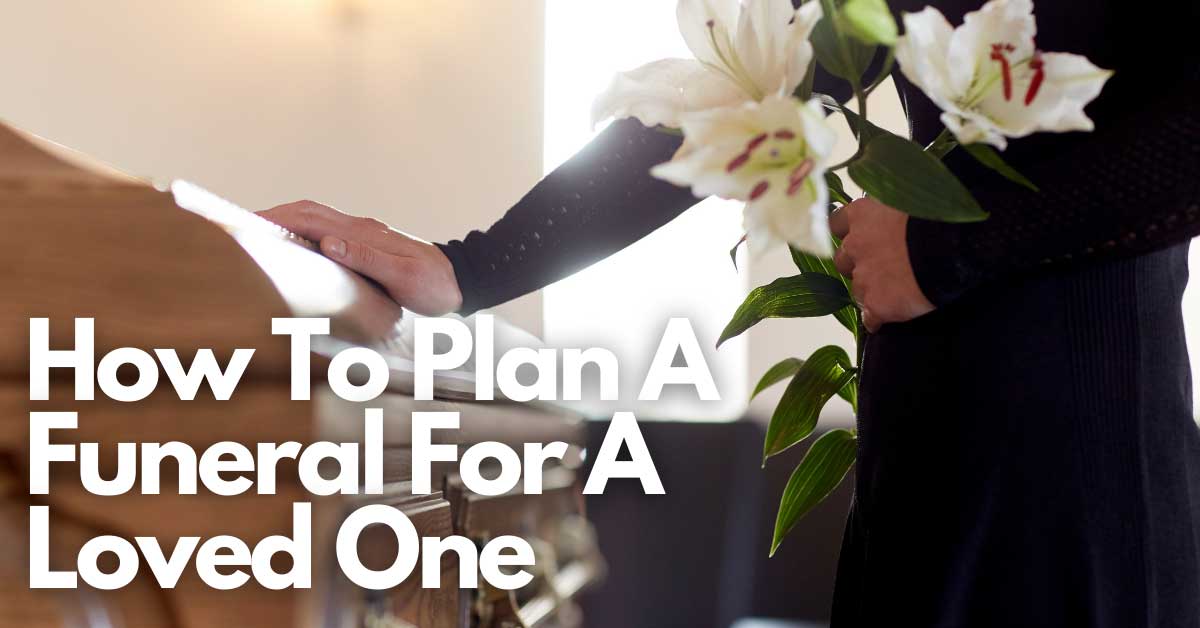How To Plan A Funeral For A Loved One
When A Loved One Passes Away, How Do You Plan A Funeral For Them Correctly?
Introduction
There never seems to be a good time to discuss funeral arrangements when a loved one passes away; however in this difficult time, it is something that has to be done relatively swiftly after their death.
It is really important to mention that it is entirely ok to have no experience in planning funerals. It is certainly not a task that most people do on a daily basis, and it is also completely acceptable to feel overwhelmed with everything that can be covered in funeral arrangements.
When you experience loss, it can be challenging to know where to start when you are asked How to plan a funeral for a loved one, as there is likely to be a multitude of emotions and feelings that are incredibly new and confusing, and that’s ok to feel that too.
Planning a final funeral for your loved one can be pretty straightforward. Still, on the other hand, it can appear like one of the most monumental tasks of all, and the difference between the 2 options can come down to knowledge of the loved one you have lost.
If you know their wishes in how they would like to leave this world concerning ceremonial arrangements, or even if they have a comprehensive will that spells everything out in detail, then the funeral planning can be incredibly simple to execute.
Of course, it goes without saying that some specific elements need covering when it comes to planning a funeral for a loved one. This process should be guided wholly by the funeral provider you choose to use or the organisation that has the authority to carry out the funeral plans. We will discuss some of these here.
What Plans Did Your Loved One Have In Place?
When you are looking at the particulars of How to plan a funeral for a loved one, it is crucial to know whether they had any existing arrangements in place as preparation.
These plans could be contained within:
- A Last Will and Testament- This is often a legal document that will lay out the arrangements for the person when they pass away. It can include the distribution of personal possessions, assets, and finances.
Still, it can also lay out arrangements for their funeral and whether they are paid for as part of insurances or pre-payment agreements.
- Funeral Plan Policies- This is extremely important to know whether your loved one has a funeral cover with a private organisation that they pay or have paid into (often called prepaid funeral plans) to ensure their funeral arrangements and particulars are taken care of.
- Spoken Word Arrangements- It may be the case that you and your loved one talked about what should happen in the event of their death, and this can be something that you would decide when planning their funeral. This could be choosing their favourite songs, colors, and even the order of service.
There is a lot to cover when to comes to funeral planning for a loved one.
Did Your Loved One Request A Burial or Cremation?
When you are looking for information on How to plan a funeral for a loved one, it is important to know whether your loved one had prepared for a burial (where they are placed in the ground in their casket, and often have a headstone to display their information) or whether they had planned a cremation (where they are burned and their remains are turned to ashes).
If your loved one is due to be cremated, there are many more options for remembrance. Of course, this can be similar to a burial plot in a garden of remembrance.
However, you can take the ashes anywhere. It’s pretty common for the remaining family or spouse to take ashes to the deceased favourite spot to decanter, or indeed turn their ashes into rings to keep them with you every day.
There is certainly no wrong choice with either option unless a definitive decision has already been made. It’s essential to make a decision based on the person you have lost and what’s best for them if there have been no choices made prior to the event.
Did Your Loved One Have A Chosen Funeral Home?
There is so much more freedom of choice when it comes to using a funeral home and funeral director these days.
Again, unless there is anything particular stipulated in any pre-death paperwork or known plans, there are so many choices when it comes to allocating the person and organisation to prepare your loved one before and during the funeral arrangements.
Often, a funeral home and the funeral director will be based in the same organisation. It may be chosen as it has connections in local areas or previously deceased family member connections.
The funeral director and the funeral home will be the people that deal with the finite details of the funeral of your loved one, payments/funeral costs, and auxiliary arrangements if needed, such as cars for attendance, floral tributes, and casket details.
The final arrangements could potentially be the most challenging part of all when looking at how to plan a funeral for a loved one. The funeral home and director will want to go through every arrangement in detail to ensure the final ceremonies are carried out in line with any wishes made.
They may also wish to know about your loved one to gain an insight into what kind of person they are to draw up any eulogies or spoken information at the funeral itself.
It may be best to write things down to ask or mention the funeral home. In the height of the grief and overwhelm, it’s common to forget things and passover information you may need to mention next time.
What To Think About When Planning A Funeral
It is essential to mention here that the planning of every funeral is different, and any arrangements should fall in line with your loved ones’ personal requirements, if there are any.
Otherwise, it is important to do whatever fits your loved one and what they will appreciate.
Some things to potentially think about when planning a funeral are:
- The funeral announcement
- The clothing for your loved one
- A eulogy
- Any other speeches
- The music for the service
- Any imagery to be displayed throughout
- Friends and family to accommodate
- Dress code and special dress requests
- Times and location of the service
- After-funeral arrangements
Of course, this is most certainly not an exhaustive list, and there could be many more or much less to plan and think about when you are looking for what to include in your loved ones’ funeral arrangements.
Conclusion
Knowing how to plan a funeral for a loved one can be one of the most emotional stressors of losing someone you love. In an already emotional time in life, the process of planning a funeral may seem like that one step further to overwhelm.
It’s ok to seek assistance and guidance from those who can give you the most impartial help.
Of course, planning a funeral for a loved one will be made easier if there have been plans or arrangements left behind to guide the process in line with the requirements and wishes of your loved one. Still, if there are no such plans or arrangements, then the guidance will always be what you think is most fitting yo your loved one.
Emotionally, there is nothing quite like planning a funeral for a loved one.
It is ok if you need to take extra time to gather your thoughts, write things down and ask questions; there are professional funeral directors who can guide you without hurrying through everything that may need to be covered.
The most important elements to remember when planning a funeral for your loved one is to take things slowly if you need to, ask many questions and make sure that the wishes of your loved one, both official ones and the unofficial ones, are taken care of in their final moments.






